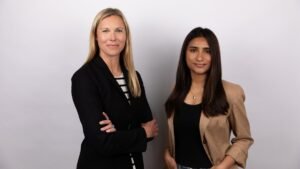Millions of individuals worldwide are impacted by autism spectrum disorder (ASD). From childhood through adulthood, these individuals and their families are in need of improved detection, treatment, and support solutions to assist them in living with autism. However, until recently, this area was not explored by startups or investors.
The Autism Impact Fund (AIF), founded in 2021, was a pioneer in this field. Co-founder and managing partner, Chris Male, was inspired to create AIF after his son was diagnosed with ASD. With the goal of becoming the “investment and innovation arm of the autism community,” Male shared with TechCrunch that AIF is a joint effort by himself and others.
Since its establishment, both AIF and startups in the neurodiversity sector have gained momentum. AIF has recently closed its first fund at $60 million, a remarkable accomplishment considering the challenges faced during the fundraising process. (The original target was $50 million.)
As Male emphasizes, AIF is a venture capital fund, not a charity. He stated, “We have excellent partnerships with non-profits and foundations, and our focus is on generating strong returns. Our objective is to revolutionize the status quo for autism and all related fields through the venture capital model.”
The limited partners of AIF include Dara Khosrowshahi, CEO of Uber, Brian Jacobs from Emergence Capital Partners, and Bob Nelsen, co-founder and managing director of ARCH Venture Partners. All three individuals also serve on AIF’s advisory board. Male respects their privacy and does not disclose their personal stories, but reveals that many of AIF’s individual backers have personal connections to autism.
In addition to individual supporters, AIF also receives institutional support from investment firms Fairfield-Maxwell and Ferd, which greatly aided in exceeding their fundraising goal. Male views this as a sign of progress, stating, “The individuals who are entering this field are no longer solely family members wanting to assist; they are professional business operators who recognize the potential for progress and transformation.”
A versatile portfolio
Some venture capital funds wait to fully close before investing, but AIF took a different approach. They began investing after the first close as they needed to demonstrate their capabilities and investment plan. With a portfolio of 12 companies, AIF plans to raise their second fund within the next six to nine months, and Male is already receiving inquiries from interested parties.
The fact that companies within AIF’s portfolio have secured additional investments from other sources is a strong validation of their potential. For instance, in October, healthcare startup Cortica received a $40 million Series D extension round of investment led by CVS Health Ventures. Other indicators of progress may be more difficult to quantify, but are still essential. Male stated that AIF has access to highly sought-after investment opportunities, and even when their contribution may not be the largest, it is seen as a “stamp of approval” by the autism community and the market.
With remaining resources from their first fund, AIF plans to invest in a few more companies and also make follow-on investments. Confident in their previous “strong bets,” they will double down on investments. Male anticipates potential exits within the next six months, as they began investing in 2021.
The portfolio of AIF is already quite diverse, based on the categories listed on their website: life sciences, as well as data- and tech-enabled services. They are also branching out beyond the U.S. with investments in Germany-based consulting firm Auticon, which operates as an “autism-majority company,” and British telehealth platform Healios. However, they continue to expand their scope, not because there is a lack of opportunities or issues to address within the autism community, but because of the complexity of autism itself.
According to Male, “The definition of autism is so broad and ambiguous that there is no clear understanding of what is taking place biologically. In order to assist individuals and their families, we must widen our perspective. Autism is connected to behavioral and mental health, and it is a broader healthcare issue that must be addressed. The societal cost currently amounts to trillions of dollars and, if the number of incidents continues to rise, this cost could reach $15 trillion. This includes the cost of unemployment and individuals being unable to contribute to society. However, it seems that society is neglecting this impending crisis without a concrete plan in place.
Raising awareness
AIF will now expand their investments to include “behavioral health data-driven platforms, innovative healthcare solutions, as well as value-based care frameworks.” They will also emphasize the importance of artificial intelligence (AI). Additionally, as autism is often accompanied by other conditions, such as gastrointestinal issues, AIF will continue investing in companies addressing these comorbidities. Finally, AIF will also focus on the aspect of independence for individuals with autism, whether that be through employment, financial independence, or housing.
It is important to remember that autism is a spectrum and needs to be addressed as such. There is a growing market for startups that focus on adults with autism, not just children. Mentra, a neurodiversity employment network, is supported by various individuals, including Sam Altman. AIF is not one of their investors, but Male is encouraged by their partnership with Auticon, an AIF-backed company, stating, “The work they are doing is extraordinary.”
Male believes that the fact that AIF is not involved in every investment in this space is a positive sign. The field has grown too large for one venture capital fund to have an involvement in every company. It is also a global issue, evident from the success of Genial Care, a healthtech company in Brazil, that recently raised $10 million to assist children with autism and their families.
When asked about the recent increase in company creation in this field, Male laughed and responded, “Compared to five years ago, it is amazing to see the momentum and growth.” As the investment side becomes busier, it is reasonable to assume that there will be even more progress in the future.








